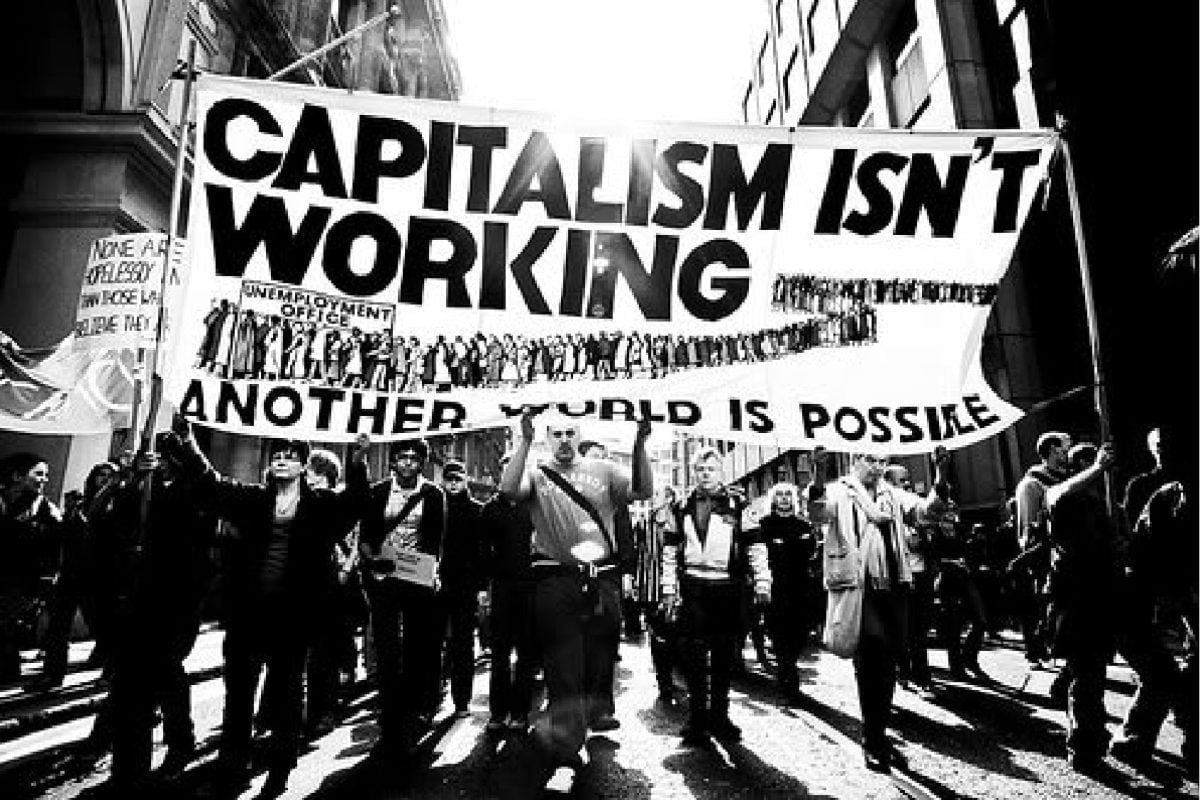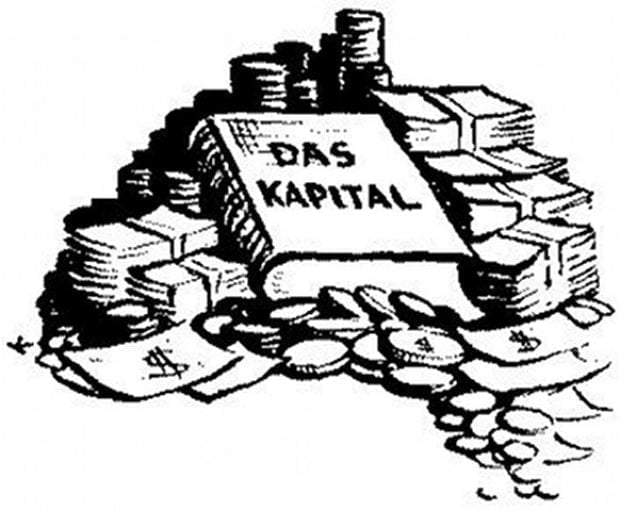The BBC Worklife blog recently hosted a post entitled The companies that churn through young workers. The article describes the harrowing environment that many young employees enter in the UK fashion industry.
Sarah, the subject of the piece, found her passion for fashion quickly curdling in the face of long hours, bad pay, and no prospects of career progress.
This is no isolated phenomenon, but a fact of life for millions of workers in Britain and globally.
In highly-stressful industries like hospitality and retail, over half of those employed report feelings of poor mental health.
Similarly, in the public sector, healthcare and education are experiencing enormous retention crises and staff shortages. Nurses, doctors, carers, and teachers are all painfully overworked and underpaid.
Scrapheap

This culture of burnout is the bitter fruit of rapacious profit-seeking by the capitalist class.
In order to raise their bottom line, the bosses cut wages and fire staff, all whilst increasing the intensity of work for those remaining.
Megacorporations, multinationals, and even entire industries are characterised by this intense exploitation; reliant on a steady stream of precarious, poorly-trained, super-exploited workers.
Blocked from rising up any career ladders, employees in these businesses and sectors are pushed to their breaking points by the capitalists – only to then be callously thrown on the scrapheap and replaced by the next generation of desperate young workers.
Turnover
Amazon is one such company, infamous for its high turnover rates. The e-commerce behemoth reportedly loses at least 3% of its workforce every week.
This is part of an intentional policy that founder Jeff Bezos has pushed in order to “prevent the growth of a stagnant workforce”.
In practice, this means that warehouse staff are frequently sacked without cause, having regularly experienced long hours, backbreaking workloads, and high injury rates.
Internal researchers predict that the company will likely run out of fresh workers to hire and fire by 2024. Yet no action has been taken to revise this ruthless approach.
Unsustainable

This chronic short-termism prevails in large sections of the UK economy. The current strike wave is – in part – a consequence of burnout and dire conditions within both the public and private sectors.
Even criminal barristers and junior doctors, once considered secure and well-compensated professions, have been forced to mobilise and walk out.
The Criminal Bar Association states that 1 in 8 barristers left the profession in 2021, declaring the situation ‘simply unsustainable’.
Similarly, the catastrophic underfunding of the NHS has resulted in 4 in 10 junior doctors planning to leave as soon as they can find another job, while a third plan to emigrate.
Exodus
Hundreds of thousands of workers are now engaging in industrial action in order to improve their pay and conditions. But many more, exhausted and shattered, are simply disengaging from work or leaving the workforce altogether.
Official reports estimate an exodus of more than half a million from the labour market in Britain since the pandemic, with people dropping out of economic activity due to chronic pain, long-term conditions, and mental health issues.
At the same time, 88% of the UK workforce has engaged in ‘quiet quitting’ over the last two years.
Overworked and underappreciated by the bosses, alienated employees are committing to the bare minimum of work stipulated in their contracts – an entirely understandable reaction to capitalism’s relentless race to the bottom.
Precarious
The explosive growth of the gig economy is perhaps the most dramatic symptom of the capitalists’ insatiable profit-seeking. These precarious sectors are projected to encompass nearly half of the workforce by 2026.
‘Gig’ jobs are characterised by payment on the basis of workers’ output (i.e. for completing specific tasks), rather than for labour time (i.e. an hourly or daily rate).
This chase for piecemeal wages adds further pressure on workers. The result is a greater intensity of labour for employees, and greater profits for the capitalists.
The fragmented, dispersed nature of this work, meanwhile, with many bogusly labelled as ‘self-employed’, has made unionising and organising more difficult, leaving gig workers as raw material for exploitation by the bosses.
Logic

In Capital, Karl Marx noted that: “It is the absolute interest of every capitalist to press a given quantity of labour out of a smaller, rather than a greater number of labourers, if the cost is about the same.”
Driven by competition, the capitalists are constantly striving to increase production and expand their markets, all while retaining fewer workers, in order to maximise their profits.
To accomplish this, the bosses can either invest in technology and technique, in order to increase the productivity of labour; or they can seek to intensify work, making employees labour harder and longer for no extra pay.
The latter is increasingly the preferred method of the degenerate, myopic capitalist class in Britain.
This one-sided class war has culminated in mass burnout, a generalised workforce exodus, and labour shortages across the UK economy.
The capitalists and their mouthpieces might complain about this broken state of affairs. Ultimately, however, this is the brutal logic of their system.
Socialism

To make matters worse for the short-sighted bosses, workers are fighting back against real-term wage cuts and intolerable conditions.
From nurses, to teachers, to workers at Amazon: those who have suffered the most from the dog-eat-dog nature of capitalism are getting organised and mobilising against the employers.
The trade unions should link these struggles together; take steps to organise the most precarious layers in the gig economy; and call for militant coordinated action on the basis of bold socialist demands.
Such a programme should include the fight for a sliding scale of wages, with pay linked to inflation; for work to be shared out equally to eliminate unemployment, with no loss of pay; and for a shorter working week, on the back of investment in automation and productivity.
To achieve these aims, ownership and control must be taken out of the hands of the capitalist class, by expropriating the bosses and billionaires, and by putting organised workers in charge of production and workplaces.
Only a socialist planned economy based on need, not profit, can free the working class from the interminable misery, agony, and toil of capitalism.






